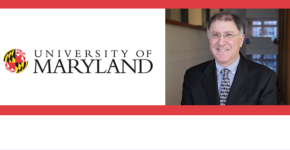Category: Biology
-

Joseph Bennett, Carleton University – De-Extinction
Should we bring species back from extinction? Joseph Bennett, assistant professor and conservation biologist at Carleton University, explores if making a real life Jurassic Park would be a good idea. Joseph Bennett is a conservation biologist and Assistant Professor at Carleton University in Ottawa, Canada. Research in his lab focusses on statistical and mathematical tools…
-

Matthew Pase, Boston University – Diet Soda and Accelerated Brain Aging
Put down the diet soda. Matthew Pase, fellow in the department of neurology at the Boston University School of Medicine, looks into whether diet drinks are more harmful than previously thought. Matthew Pase is a fellow in the MED neurology department at Boston University Medical School and an investigator at the FHS. Diet Soda and…
-

Jeffrey Gardner, University of Maryland Baltimore County – Bio-prospecting
We’ve all heard of gold rush prospectors, but how about bio prospectors? Jeffrey Gardner, Assistant Professor in the Department of Biological Sciences at the University of Maryland Baltimore County, explores how we can find better ways to make the products we use today. Our lab is focused on understanding the metabolism and physiology of bacteria,…
-

Shelby Putt, Indiana University – Functional Brain Networks and Early Stone Tools
To view history, let’s dig into our brains instead of the Earth. Shelby Putt, postdoctoral research fellow at Indiana University, discusses why learning how our ancestors used their brains can help us understand the evolutionary puzzle. Dr. Putt is a Postdoctoral Research Fellow at the Stone Age Institute and the Center for Research into the…
-

Marla Sokolowski, University of Toronto – Fruit Flies and Obesity
Newborn fruit flies might not be that different from human babies. Marla Sokolowski, professor in the department of ecology and evolutionary biology at the University of Toronto, looks at the genes of both species and finds a link that could help control obesity for us all. Marla B. Sokolowski, B.Sc. (1977, University of Toronto), Ph.D.…
-

Oscar Vilarroya, Autonomous University of Barcelona – Pregnancy Modifies a Woman’s Brain
Pregnancy modifies a woman’s body, but how about her brain? Oscar Vilarroya, associate professor in the department of psychiatry and forensic medicine at the Autonomous University of Barcelona, delves into whether pregnancy leads to changes in how a new mother thinks. I am currently Associate Professor of Psychiatry at the Universitat Autonoma de Barcelona (UAB),…
-

Chris Austin, Louisiana State University – DNA from Museum Specimens
Can you extract DNA from museum specimens? Christopher Austin,associate professor in the Department of Biological Sciences and head curator of amphibians and reptiles in Museum of Natural Science at Louisiana State University, explores a new way to gather information on the past. I completed my undergraduate degree at the University of California at Davis and…
-

Ameae Walker, University of California Riverside – Vaccinating Babies Against Tuberculosis
How do you better vaccinate a newborn against tuberculosis? Ameae Walker, professor of biomedical sciences at the University of California Riverside, describes a new treatment option. Research in my laboratory is concerned with the growth factor activities of the hormone prolactin. These growth factor activities occur in many tissues including the pituitary, breast, endocrine pancreas,…
-

Jonathan Dinman, University of Maryland – VEEV
Is there a vaccine on the way for a weaponized virus from the Cold War? Jonathan Dinman, professor of cell biology and molecular genetics at the University of Maryland, explores a breakthrough against a dangerous pathogen. Jonathan Dinman received his A.B. in Philosophy from Oberlin College in 1980, and his Ph.D. in Immunology and Infectious…
-

William Rogers, Winthrop University – Dolphins
Do dolphins speak in different dialects? William Rogers, professor of biology at Winthrop University, examines river dolphins in Peru to answer this question. Dr. Rogers has taught biology at various levels since he was in high school in San Francisco, Calif. He has been at Winthrop for more than 20 years and before that taught…
